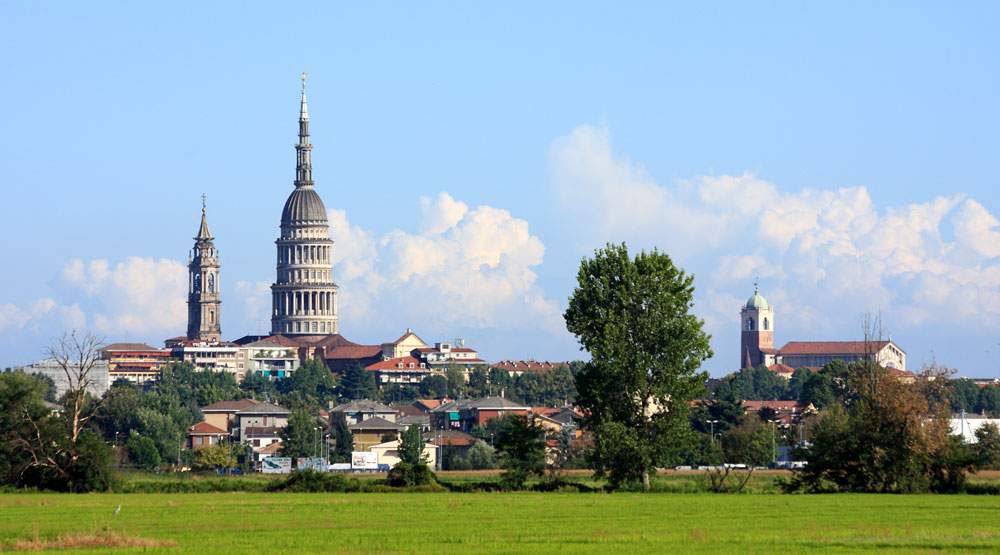On these pages, in early March, we gave evidence of a document that denounced the serious situation of the Naples superintendency, which is suffering from very heavy technical and organizational difficulties, including staff shortages, unsustainable workloads, lack of a Tenders Office, Contracts Office, Accounting Office, Purchasing Office and Technical Secretariat, as well as a suitable number of collaborators to help the technical staff. There is now another superintendency that is in serious ambit, and that is the Soprintendenza Archeologia, Belle Arti e Paesaggio (SABAP) in Novara, which is also responsible for the provinces of Biella, Verbano-Cusio-Ossola and Vercelli.
Here, against a planned staffing of 54, there are only 14 staff members, who must therefore work for as many as four provinces. Also in Novara, there is then no administrative officer, no service car, no library, no restoration laboratory, no historical archives, and no archaeological depository. The situation of the Novara superintendency is the subject of a parliamentary question by six members of the 5-Star Movement (Margherita Corrado, Luisa Angrisani, Nicola Morra, Michela Montevecchi, Danila De Lucia and Orietta Vanin) presented the day before yesterday (Wednesday June 10), which denounces all its difficulties while also pointing out the substantial difference from the Turin superintendency, where the staff amounts to 90 units and is supernumerary compared to the organic plan (despite the fact that the territory covered is quite similar: 6.605 square kilometers that of the four provinces, 6,821 that of Turin; 318 municipalities between Novara, Vercelli, Biella and Verbania, 316 in the metropolitan city of Turin).
Corrado and the other Pentastellati parliamentarians also denounce the lack of ordinary operating funds for the offices: “there remain uncovered,” the question reads, “electric utilities no less than those for heating, supplier balances no less than mission payments from 2018 to date.” Then there is another problem, namely the Novara superintendency does not have its own manager, but has an interim one, Antonella Ranaldi, who has a three-year assignment as superintendent of Milan.
A similar situation exists for the superintendency of Alessandria, which is responsible for the provinces of Asti and Cuneo (the latter is, moreover, the fourth largest in Italy by area). Here, too, there is an interim manager (namely Luisa Papotti, superintendent of Turin). The choice of assigning to Novara and Alessandria two superintendents working in other cities, the parliamentarians denounce, “both turned out to be penalizing for the new offices, since the managers of Turin and Milan, already overburdened with work in their respective territories, could not ensure the offices temporarily entrusted to them the continuity of presence and attention due.” In addition, the Alessandria staff is also understaffed, since 21 people work here: thus, in total, there are 35 people in Piedmont who take care of 70 percent of the territory (such is that of the superintendencies of Novara and Alessandria), against 90 who instead work on 30 percent. This anomalous situation, Corrado and the other Pentastellati denounce, occurred because following the 2014 ministerial reform, “no employee from Turin wanted to move to Novara or Alessandria, nor could he or she be transferred ex officio to a distance of more than 50 kilometers from his or her home; in the two new Piedmontese SABAPs, therefore, were incardinated, almost only officials who came out of the last competition, obviously penalized by the lack of handover with their predecessors in the face of a very varied territory, rich in lakes, mountains and other areas of scenic value (such as Monferrato and Asti), where the specific constraints are many and the amount of work conspicuous.”
It should also be remembered that the provinces of Piedmont are a very rich territory, on which many restorations are still being made, and where UNESCO sites of great value are housed (the Sacri Monti of Piedmont, the pile-dwelling sites of the Alps, the wine-growing landscape of the Langhe-Roero and Monferrato): the entities are therefore forced to survive among excessive workloads and a lack of professional profiles that can deal with such a vast and complex territory.
According to the question, the unbalanced contingency “is a consequence of the fact that no competitions for new managers have been held at the Ministry since 2007, while the current ones are inexorably decreasing in number, due to retirement or premature death,” so “increasingly often the same manager has to take on more than one superintendency, even when he or she did not participate in the interpellation calling for that location, and sometimes even the regional secretariat; at other times the administration resorts to ministerial executives from directorates-general other than the superintendency or, even, to individuals from outside the ministry if not the entire public administration, as in the case of the director of the Royal Museums of Turin, one of the institutes with special autonomy.”
What the questioners are therefore asking the minister of cultural heritage, Dario Franceschini, is to “take note of the dysfunctions created for employees no less than for users by the reorganization of the dicastery that he himself wanted,” and to “restore the administrative machine’s ability to carry out its institutional tasks,” after hiring the staff to be recruited through the competitions announced by his predecessor, Alberto Bonisoli (and so far not carried out), as well as after holding a new competition for managers that will hire more than the 65 currently scheduled (including only 4 archaeologists).
Pictured: a view of Novara. Ph. Credit Alessandro Vecchi
 |
| Severe staff shortages and lack of funds, superintendency situation in Piedmont is dire |
Warning: the translation into English of the original Italian article was created using automatic tools. We undertake to review all articles, but we do not guarantee the total absence of inaccuracies in the translation due to the program. You can find the original by clicking on the ITA button. If you find any mistake,please contact us.